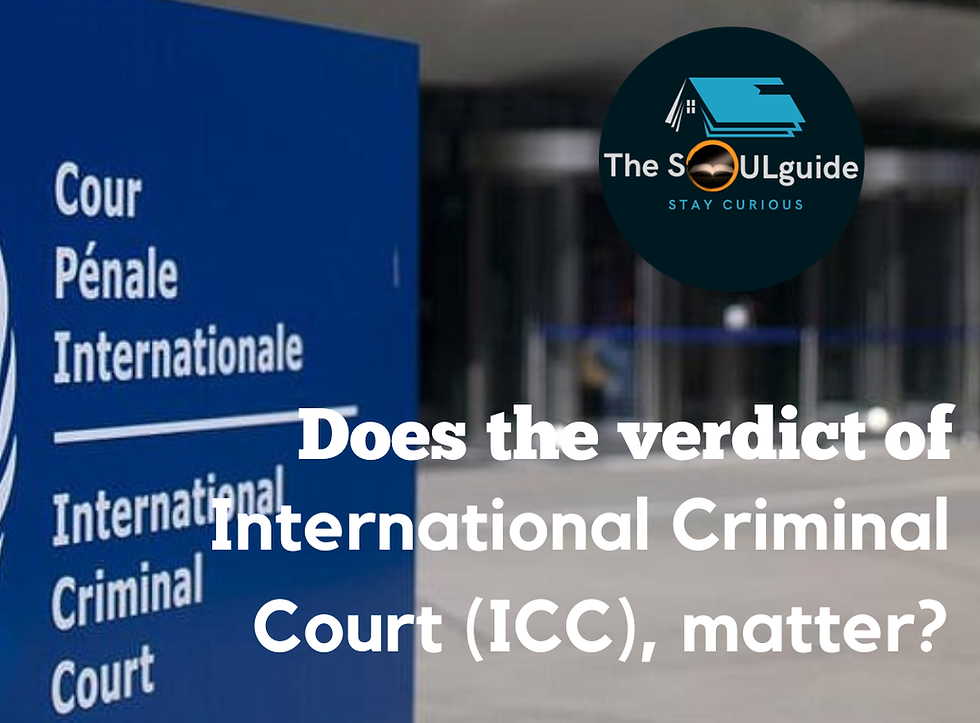What are Electoral Bonds? How it is against the rights of the citizens? The Supreme Court judgment and issues with the bonds.
- TheSoulGuide

- Feb 15, 2024
- 4 min read
Political parties take donations from the people to run their daily affairs and manage their activities. However, it has become a dangerous practice wherein the corporate houses who are not the citizens of the country (their management people are but not the company) donate millions of rupees to political parties to get favour in return when voted to power. This practice exists in all the countries and not only India. However, after a time it becomes dangerous as the benefits becomes disproportionate and resources of nation get into few hands only apart from the elected leaders. Therefore, transparency becomes most important aspect of it. But electoral bonds were taking away the rights of the citizens to know who is giving money to the leaders elected by the citizens. Supreme court in its judgement revoked the bonds scheme used to take money for political funding. Let's know what is the issue?

What is the Electoral Bond Scheme?
Electoral bonds were introduced in the 2017 Union Budget with the aim of improving transparency in political funding. However, concerns were raised regarding the anonymity of donors and the lack of disclosure. To address these concerns, the cash donation limit was reduced from ₹20,000 to ₹2,000, while the mandatory disclosure limit remained at ₹20,000. Private entities were allowed to purchase and transfer these bonds to political parties.
The government officially announced the implementation of electoral bonds on 2 January 2018, presenting them as an alternative to cash donations made to political parties. Essentially, electoral bonds are financial instruments that can be purchased by citizens or corporate groups from a bank and then given to a political party. The party can then redeem these bonds for money.
However, it is important to note that only political parties registered under Section 29A of the Representation of the People Act, 1951, and those that secured at least one percent of the votes in the last general election to the Lok Sabha or state legislative assembly are eligible to receive electoral bonds.
According to the notification, eligible political parties can encash electoral bonds only through accounts with authorized banks.
According to the Ministry of Finance, “The purchaser would be allowed to buy an electoral bond(s) only on due fulfilment of all the extant KYC norms and by making payment from a bank account. It will not carry the name of the payee. Electoral Bonds would have a life of only 15 days during which they can be used for donating only to the political parties registered under section 29A of the Representation of the Peoples Act, 1951 (43 of 1951) and which secured not less than one per cent of the votes polled in the last general election to the House of the People or a Legislative Assembly."
The Intervention of Supreme Court.
On 15 February 2024, the long-awaited ruling on the electoral bonds case was finally delivered by the Supreme Court. The judgment declared that anonymous electoral bonds are in violation of the right to information as stated in Article 19(1)(a) of the Constitution. Consequently, the scheme has been deemed unconstitutional. The constitution bench, consisting of Chief Justice DY Chandrachud, and Justices Sanjiv Khanna, BR Gavai, JB Pardiwala, and Manoj Misra, diligently heard a series of cases challenging the controversial electoral bonds scheme over a span of three days.
SBI asked to give details to ECI, ECI to publish the details on its website.
The Court issued the following directions :
The issuing bank shall herewith stop the issuance of electoral bonds.
The State Bank of India shall submit the details of electoral bonds purchased since the interim order of the Court dated 12 April 2019 till date to the Election Commission of India. The details shall include the date of purchase of each electoral bond, the name of the purchaser of the bond and the denomination of the electoral bond purchased.
State Bank of India shall submit the details of the political parties which have received contributions through electoral bonds since the interim order dated 12 April 2019 till date to the ECI. SBI must disclose details of each electoral bonds encashed by the political parties, which shall include the date of encashment and the denomination of electoral bond.
SBI shall submit the above information to the ECI within three weeks from date of judgement, ie by 6 March
ECI shall publish the information received from the SBI on its website by 13 March 2024.
Electoral Bonds which are within the validity period of 15 days but which have not been encashed by the political parties yet shall be returned by the political party to the purchaser. The issuing bank shall then refund the amount to the purchaser's account.
The Supreme Court decision must be appreciated as it strengthens the democracy and infuse transparency and trust.
Also read about, how Electronic Votings Machines came into existence, here.
Stay tuned for more. Get membership for free and feature your article. Check here.




Comments